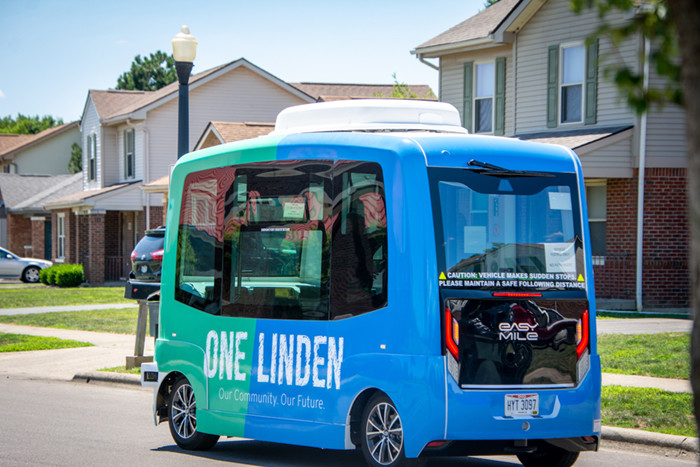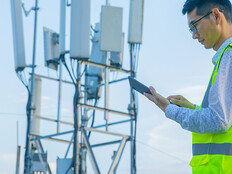New Smart Mobility Pilots Get Off the Ground
The first new pilot, known as the Smart Mobility Hub, is designed to help address the problem of bus stops being too far away for some residents.
“While micro forms of transportation to address this issue exist, they are not centralized at convenient access points,” the city notes in its release. “Smart Mobility Hubs were created to aggregate multi-modal first mile/last mile solutions at accessible locations throughout the community to make traveling easier and more affordable.”
Smart Mobility Hubs will provide residents with a number of different transportation options in one place and give users, via an interactive digital kiosk, access to Wi-Fi, emergency calling, social services maps and a comprehensive trip planning and payment service. Those transportation options include CoGo conventional and e-bikes, scooter charging docks and parking, electric vehicle charging, ride-hailing pickup and drop-off points, and dockless scooter, bike and car-sharing parking.
Smart Mobility Hubs are now open at several locations in the city, including Columbus State Community College, Linden Transit Center, St. Stephen’s Community House, the Columbus Metropolitan Library’s Linden Branch, COTA’s Northern Lights Park & Ride and Easton Transit Center.
In another pilot project, Smart Columbus is seeking 500 community volunteers to have connected vehicle technology placed in their personal cars. “The equipment will provide real-time safety alerts intended to help drivers make more informed decisions while en-route to their destination,” the city notes.
The city will conduct a seven-month study to look specifically at anonymous data collected from vehicles traveling along Cleveland Avenue between 2nd Avenue and Morse Road, High Street between 5th Avenue and Morse Road, and Morse Road between High Street and Stygler Avenue.
The project, which uses technology from Siemens Mobility, uses roadside units to provide vehicles with time-critical data, such as signal phases and timing. Additional information is transmitted from a traffic management center via 4G LTE wireless networks to the cars.
The new pilots are part of an evolving smart mobility program in Columbus that is still trying to determine what works best for residents. “Have we figured out how all these technologies actually impact peoples’ quality of life on a day-to-day basis? I think we’re still figuring that out,” Jordan Davis, Smart Columbus director for the Columbus Partnership, tells Route 50.
“I think we’ve kind of gotten through the hype curve on some of this and now we’re iterating to think, okay, ‘The technology is good, the promise is right, we’re not there yet, but how else can we use it to bring about incremental change,’” she adds.
MORE FROM STATETECH: See how edge computing helps smart cities with data collection and processing.
Columbus Reassigns Autonomous Shuttle to Deliver Groceries
Mandy Bishop, Smart Columbus program manager with the city, told Route 50 in July that most of the city’s smart mobility projects in the South Linden neighborhood had yet to deploy. The city has emphasized that it wants “emerging transportation technology to solve some of the problems faced by lower-income residents,” in the neighborhood, Route 50 reports.
Earlier this year, Columbus planned to launch another 2.7-mile shuttle route in the Linden neighborhood to help connect citizens to the area’s transit center and a community center that offers healthcare and other services.












